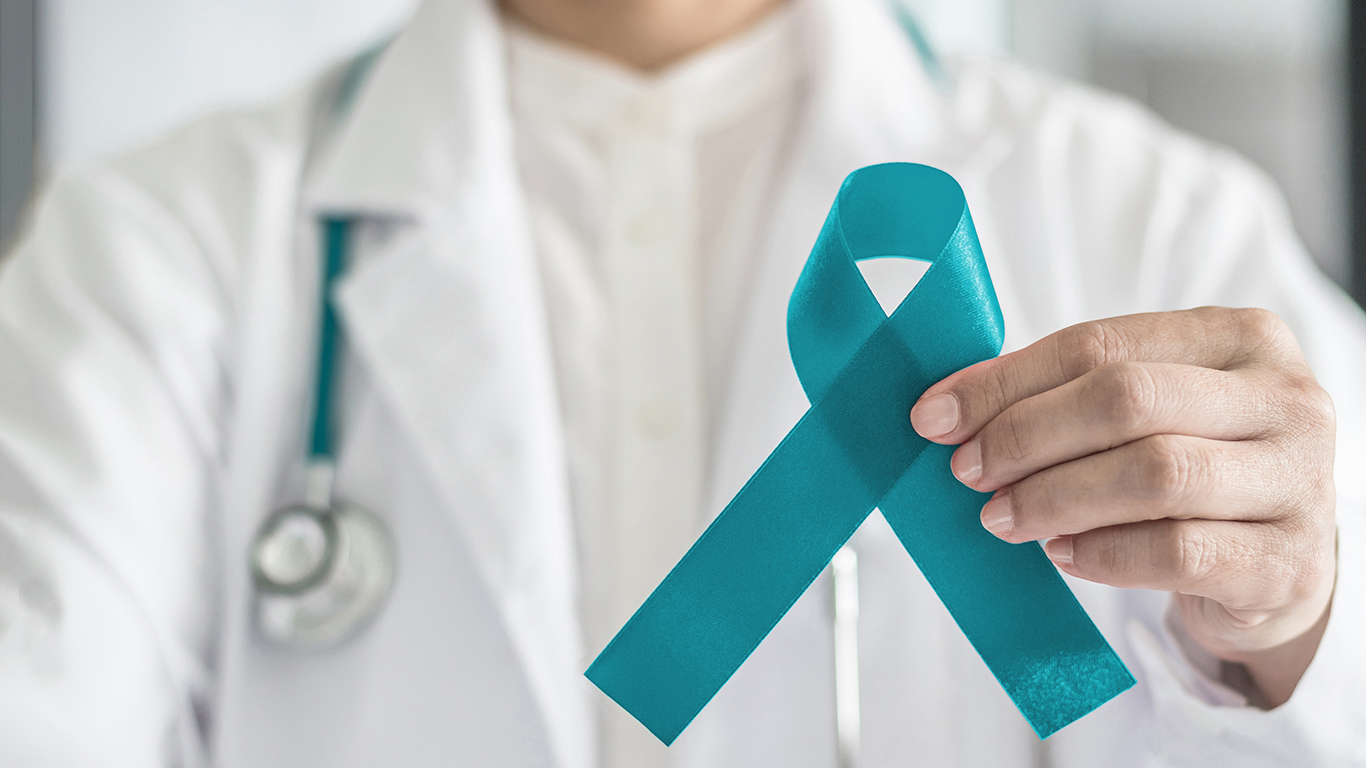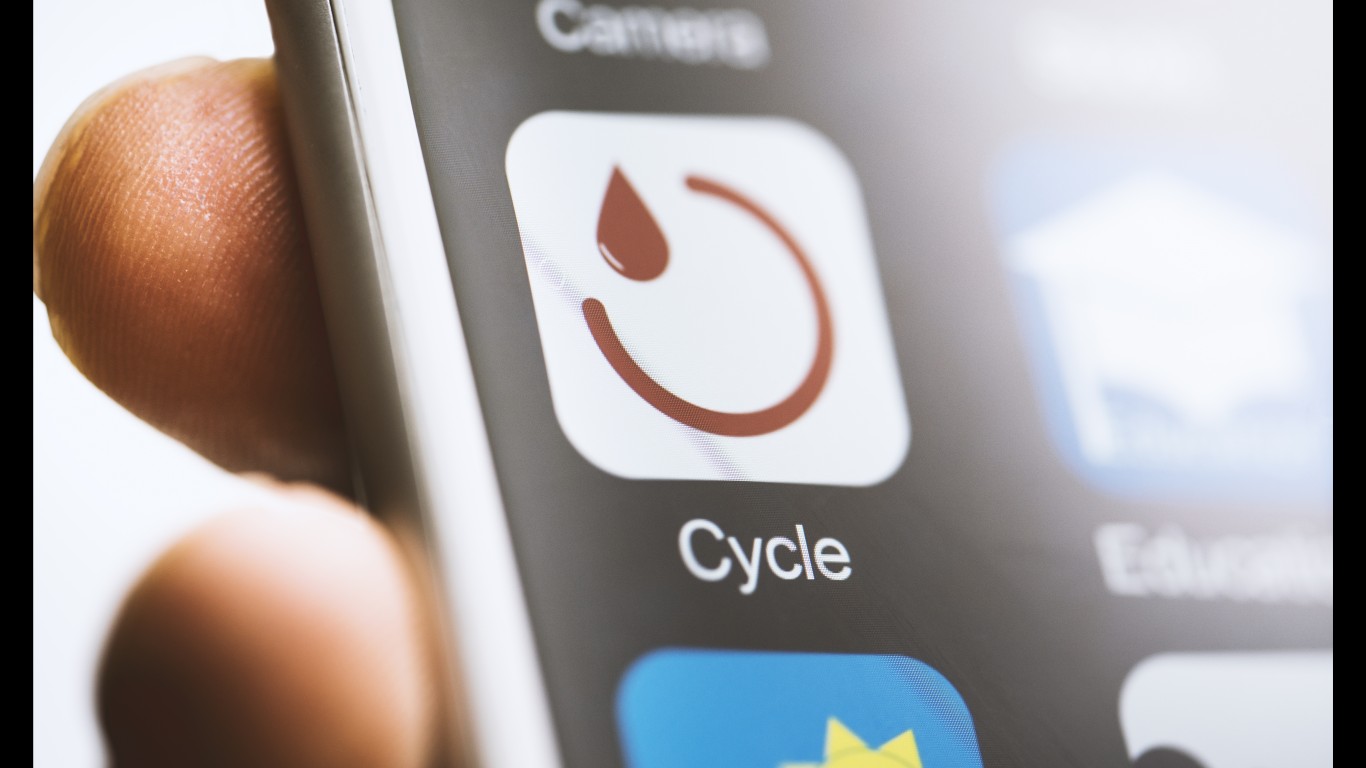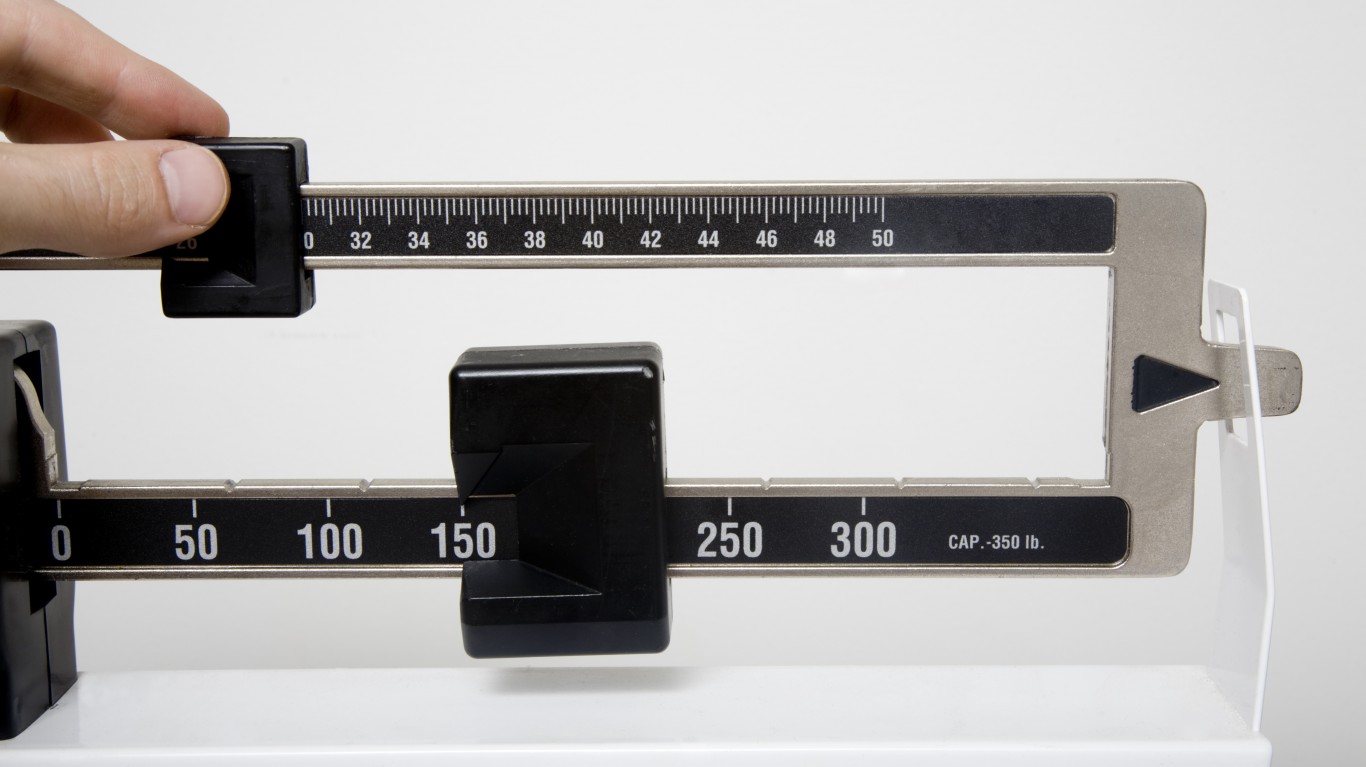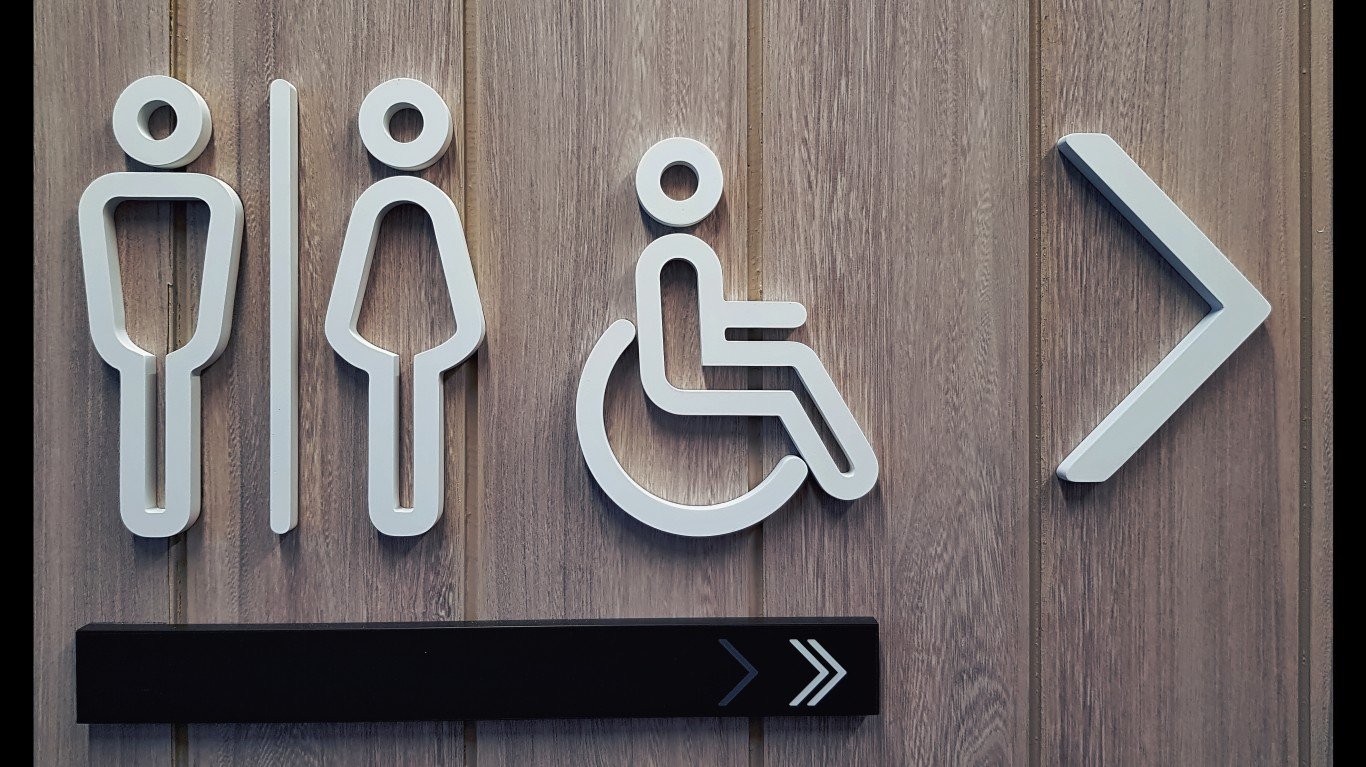

Ovarian cancer is sometimes referred to as a silent killer because early symptoms are often absent or, when present, they are too vague. Even when there are signs, it’s common for primary care physicians to mistaken them for digestive issues or hormonal changes that occur naturally as women get older.
This confusion is one reason for the cancer’s low survival rates, according to the American Cancer Society, as four out of five women with the disease are diagnosed in the later stages. While ovarian cancer accounts for about 3% of all female cancer cases in the United States, it accounts for 5% of all cancer deaths among women, more than any other cancer of the female reproductive system.
While women are more likely to have symptoms as the cancer grows and spreads, early-stage ovarian cancer can cause them, too. 24/7 Tempo identified 11 possible early signs of the condition.
The most important thing to remember about cancer signs is consistency. Regardless of how vague new symptoms are — bloating, early satiety, or tiredness — they should be investigated if they occur for more than two weeks, said Dr. Nicholas Tarricone, a gynecologist and the chair of the Department of Obstetrics and Gynecology at ProHEALTH Care in Rockville Centre, New York.
Any abdominal pain a woman can’t explain, especially if she is over the age of 40, should be discussed with her gynecologist, Tarricone said. And keep in mind that it’s common for different signs of ovarian cancer to occur simultaneously, he added. Sometimes vague signs are actually alarming signs of an underlying health problem that needs medical attention — like these 25 health symptoms people often ignore but never should.
Early detection increases the chance of successful treatment. When the tumor has been caught before it has spread to other parts of the body, at stage 1, and has been dealt with surgically, the survival rate is between 85% and 90%, according to Tarricone. At stage 3, the most common stage the disease is diagnosed, at best the survival rate is about 50%, he added.
Nationwide, women are slightly more likely than men to be diagnosed with cancer. Higher cancer diagnosis rates in women are partially because women can develop five different common types of cancer than men cannot — these are the most common types of cancer in men and women.
Click here to see early signs of ovarian cancer.
To identify early symptoms of ovarian cancer, 24/7 Tempo consulted a gynecologist and reviewed several sources, including the American Cancer Society, the National Ovarian Cancer Coalition, Cancer Treatment Centers of America, as well as several states’ departments of health sites and information provided by medical centers

1. Bloating
Many women don’t realize that bloating is an early sign of ovarian cancer. In fact, two-thirds of women in the U.K. wouldn’t even go to see a doctor if they experienced persistent bloating, according to the country’s ovarian cancer charity, Target Ovarian Cancer. “Bloating is the most common very early sign of ovarian cancer,” Dr. Tarricone said. “Even fatigue shows up later.” The bloating in the very early stages of the disease is actually gas building up in the abdomen as a result of the tumor growing and causing local inflammation.
What often causes bloating in women with ovarian cancer in the later stages is ascites, which is a buildup of fluid in the stomach, according to Tarricone. The condition can develop for several reasons, including cancer cells spreading to the lining of the abdomen or blocking the lymphatic system, preventing fluids from flowing properly.
[in-text-ad]

2. Indigestion
Indigestion is often caused by something a person ate and not an underlying disease. But if a woman experiences recurrent pain or discomfort in the upper abdomen even after changing her diet, a check up with a doctor may be a good idea.
Indigestion can be due to ascites. Because indigestion is often a symptom of gastrointestinal illness and other health conditions, doctors may consider a range of issues first, delaying the diagnosis until the cancer has reached an advanced stage.

3. Constipation
After spreading to the colon or from the formation of ascites, ovarian cancers can cause narrowing of the bowel and lead to constipation. The fluid buildup may be putting pressure on the bowel, making it hard for stool to pass. It is also possible for some women with ovarian cancer to suddenly develop severe constipation that alternates with diarrhea.

4. Pressure in the pelvis area
Pelvic pain or pressure is not uncommon in women with ovarian cancer. The ovaries may be inflamed and enlarged, causing pain. The pelvic pain may also be as a result of fluid buildup in the abdomen. Masses growing in the pelvic area in general often cause pain that feels very much like cramps. This is another reason ovarian cancer is not diagnosed until later stages; many women simply assume they have stomach or other feminine troubles.
[in-text-ad-2]

5. Feeling full sooner
Ovarian cancer symptoms may vary with every stage of the disease. Some women may not experience any symptoms at the beginning, and if they do, the symptoms are often very vague. A common early sign is feeling full quickly after eating even a light meal, Dr. Tarricone explained. The tumor pushes the intestine, which pushes the stomach, which now has less space for food.
In the very early stages of ovarian cancer, early satiety is often caused by fluid buildup in the abdomen. This build up in turn slows down digestion, allowing gas to fill the volume in the abdominal cavity, making you feel full almost right away, Tarricone explained. The key with early symptoms is consistency. If feeling full after just a few bites happens for two or more weeks, a visit to the doctor may be warranted.

6. A loss of appetite
Changes in appetite, such as having little or no appetite, are common in women with ovarian cancer. The reason is often similar to the cause of early satiety, Dr. Tarricone explained. It’s normal to not have an appetite when you feel bloated. The loss of appetite may be a direct result of the cancer, which may be causing metabolism changes. It may also, however, be an indirect result of other cancer symptoms such as pain and fatigue. When people feel unwell in general they are less likely to eat. Sometimes, doctors may recommend a short course of steroids to increase appetite and energy in people with cancer.
[in-text-ad]

7. Fatigue
Getting tired easily can be easily ignored. Everyone gets tired after certain activities. But tiredness should not be confused with chronic fatigue — a constant lack of energy that never seems to go away regardless of how many hours of sleep a person gets. Why exactly cancer causes fatigue is unclear. One theory involves lack of nutrients as cancer cells take the nutrients from normal cells, leaving the body depleted of healthy nutrients.

8. Period changes
Most of the time, changes in the menstrual cycle don’t occur until the disease is in more advanced stages. Abnormal bleeding is one of the rarer early signs of ovarian cancer that almost always prompts women to see medical attention, Dr. Tarricone explained. Heavier than normal bleeding, bleeding between periods, or a period lasting longer than normal are all considered abnormal bleeding, he added.

9. Unexplained weight gain or loss
Weight loss is not always a cause for concern, especially if the reason is intentional dieting. But an unexplained loss of appetite and weight loss could point to something more serious. When the body fights ovarian cancer, it produces cytokines to fight the disease and they may lead to loss of muscle and decreased appetite.
Weight gain, however, may have a more direct connection to cancer. Weight gain may be due to fluid buildup in the abdomen or in the pelvis. “Fluid is heavy,” Dr. tarricone said. “[The fluid] also makes the belly stick out more and that’s why it looks like the pants don’t fit anymore.”
[in-text-ad-2]

10. Back pain
Back pain may develop in women with ovarian cancer due to fluid buildup in the pelvic area, especially if the uterus is tipped backwards, according to Dr. Tarricone. In this case, the ovaries sit behind the uterus and any enlargement, such as tumors growing, will put pressure on the nerves in the pelvis and in the back, causing pain, he explained. Fluid buildup in the pelvis can also cause back pain.

11. Frequent urination
If a woman goes to the bathroom much more frequently than usual — and she is not pregnant or has an infection — it’s a good idea to investigate this further. “This is not a common early sign of ovarian cancer,” Dr. Tarricone said. However, the bladder and ovaries are located very close to one another, and sometimes the urinary tract may be affected if the woman has ovarian cancer. The tumor, when it’s too big, may be pressing on the bladder, causing increased pressure within the abdomen, causing frequent and urgent need to go to the restroom. Urinary incontinence is one of the two most common early signs of the cancer (along with abdominal pain), according to a study of 107 ovarian cancer patients.
Essential Tips for Investing: Sponsored
A financial advisor can help you understand the advantages and disadvantages of investment properties. Finding a qualified financial advisor doesn’t have to be hard. SmartAsset’s free tool matches you with up to three financial advisors who serve your area, and you can interview your advisor matches at no cost to decide which one is right for you. If you’re ready to find an advisor who can help you achieve your financial goals, get started now.
Investing in real estate can diversify your portfolio. But expanding your horizons may add additional costs. If you’re an investor looking to minimize expenses, consider checking out online brokerages. They often offer low investment fees, helping you maximize your profit.
Thank you for reading! Have some feedback for us?
Contact the 24/7 Wall St. editorial team.
 24/7 Wall St.
24/7 Wall St.


